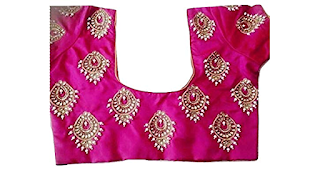Influence of Fashion Week on Upcoming Trends
Introduction
Fashion Week is an annual event that brings together designers, brands, celebrities, and fashion enthusiasts from around the world to showcase the latest trends and styles. It serves as a platform for designers to present their collections, and it also has a significant impact on the upcoming trends in the fashion industry. In this article, we will explore the influence of Fashion Week on the development of fashion trends.
The Main Keyword Experience
Fashion Week: Every year, fashion weeks are held in major fashion capitals such as New York, Paris, Milan, and London. These events attract industry insiders, celebrities, and fashion enthusiasts who gather to witness the unveiling of the latest designs from top designers. Fashion Week provides a unique opportunity for designers to showcase their creativity and craftsmanship on a global stage.
The Impact of Fashion Week on Trends
Fashion Week is a crucial event in the fashion industry as it sets the tone for upcoming trends. Designers often use the runway as an avenue to experiment with new designs, fabrics, colors, and styles. The trends showcased during Fashion Week often trickle down to mainstream fashion and influence the choices of consumers.
How Fashion Week Influences Designers
Fashion Week serves as a catalyst for designers, pushing them to think outside the box and create innovative designs. The pressure to stand out among the crowd of talented designers drives them to experiment and take risks. They draw inspiration from various sources, including art, culture, and social issues, infusing their collections with unique perspectives.
Influence on Colors, Fabrics, and Silhouettes
Fashion Week has a significant impact on the colors, fabrics, and silhouettes that will dominate the upcoming seasons. Designers often introduce new color palettes and experiment with different fabric textures and finishes. The silhouettes showcased on the runway set the trends for the shapes and cuts that will be popular in the coming seasons.
Impact on Accessories
Fashion Week doesn't just focus on clothing; it also highlights the latest trends in accessories. From statement jewelry to handbags and shoes, designers use the runway to showcase their newest accessory collections. Fashion Week sets the stage for the accessories that will be in demand in the upcoming seasons.
Spreading Trends to the Masses
Once the trends have made their debut on the Fashion Week runway, they begin to filter down to the mainstream market. High-street brands and mass-market retailers take inspiration from the runway and reinterpret the trends for a wider audience. This ensures that the latest fashion trends are accessible to a broader range of consumers.
Influencing Consumers' Choices
Fashion Week has a direct influence on consumers and their purchasing decisions. After witnessing the latest trends on the runway or through media coverage, consumers often seek to incorporate these trends into their own wardrobes. The fashion industry capitalizes on this desire by making the trendiest pieces available in stores shortly after Fashion Week.
Bridging the Gap between Runway and Street Style
Fashion Week also serves as a bridge between high-end fashion and street style. Street style photographers capture the looks of influential individuals attending Fashion Week, and these images circulate on social media platforms, inspiring millions around the globe. Fashion bloggers and influencers often recreate these looks, making them accessible to a wider audience.
Conclusion
Fashion Week plays a pivotal role in shaping upcoming trends in the fashion industry. From colors and fabrics to silhouettes and accessories, designers bring their creative visions to life on the runway. These trends then make their way to the mass market, influencing consumers' choices and inspiring street style around the world. As the fashion industry continues to evolve, Fashion Week remains a significant event that sets the tone for the future of fashion.



Comments
Post a Comment